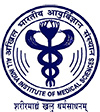

An Act of Parliament in 1956 established the All India Institute of Medical Sciences (AIIMS, New Delhi), as an autonomous institution of national importance and defined its objectives and functions. By virtue of this Act, the Institute grants its own medical degrees and other academic distinctions. The degrees granted by the Institute under the All India Institute of Medical Sciences Act are recognized medical qualifications for the purpose of the Indian Medical Council Act and notwithstanding anything contained therein, are deemed to be included in the first schedule of that Act, entitling the holders to the same privileges as those attached to the equivalent awards from the recognized Universities of India.
OTHER AIIMS
Under the Pradhan Mantri Swasthya Suraksha Yojana 6 new All India Institutes of Medical Sciences have been established similar to AIIMS, New Delhi. Government of India had decided that from Academic Session August, 2013, B.Sc. (Hons) Nursing course will be started in six new AIIMS at Bhopal, Bhubaneswar, Jodhpur, Patna, Raipur and Rishikesh. The proposal is for an intake of 60 students for each of the institutions for B.Sc. (Hons) Nursing Course. The Ministry after deliberation took the view that selection for admission should be done through the same entrance examination through which candidates are selected for AIIMS New Delhi. The counseling and admission in six new AIIMS will be done by the Ministry of Health & Family Welfare, Government of India. Any dispute in regard to counseling and admission to six new AIIMS will be dealt with by Ministry of Health and Family Welfare, Nirman Bhavan, New Delhi.
AIIMS and Objectives
In the field of postgraduate education, the most essential function of the Institute is to provide opportunities for training teachers for medical colleges in the country in an atmosphere of research and enquiry. The postgraduate students are exposed to the newer methods of teaching and given opportunities to actively participate in teaching exercises. The other important objectives of the Institute are to bring together in one place educational facilities of the highest order for the training of personel in all the important branches of health activity and to attain self-sufficiency in postgraduate medical education. The educational principles and practices being adopted are those which are best suited to the needs of the nation.